Sensory play can seem like a whole lot of mess in the name of frivolous play. Inside I will share the research behind why sensory play is so important as well as tips to contain the mess, execute simple sensory play ideas and more.
It was a scorching hot evening in our old neighbourhood.
We were on the 24th floor of an apartment that soaked up every beam of the afternoon sun. Sweltering my way through making dinner, my just-turned-one-year-old sat underfoot, unsettled.
She never lets me cook alone.
This particular day, however, the heat combined with my divided attention had her particularly ornery. As I husked corn, her big eyes looking up at me. As I pressed the skin of the husk in between my finger and thumb, I had an idea! I switched from husking into the sink to husking on to the floor. Almost immediately daughter was mesmerized as she pulled the corn silk from the husk little bit by little bit. She was calm, focused, and methodical.
It was the first time I saw how sensory play correlated with increased self-regulation in a child. It also showed me how simple sensory play ideas could be. Since then, I have seen how the chaos in my home can turn to calm by grabbing a simple sensory play medium, setting up an invitation to play, and letting my kids explore at their own pace.
Related reading: Calming Sensory Play Activities to Increase Self-Regulation
There is no denying there is a self-regulation component to sensory play.
When my kids are acting up, there have been times I’ve ran a bath and put them in. Almost instantly, they are splashing happily. When they are worked up, I take them to the park. They get their hands into something like wood chips or sand. And they become focused and quiet.
But self-regulation only scratches the surface of the value that comes from sensory play.
What is sensory play?
Sensory play is any form of play that combines touch, taste, smell, sight, or hearing to develop cognitive skills.
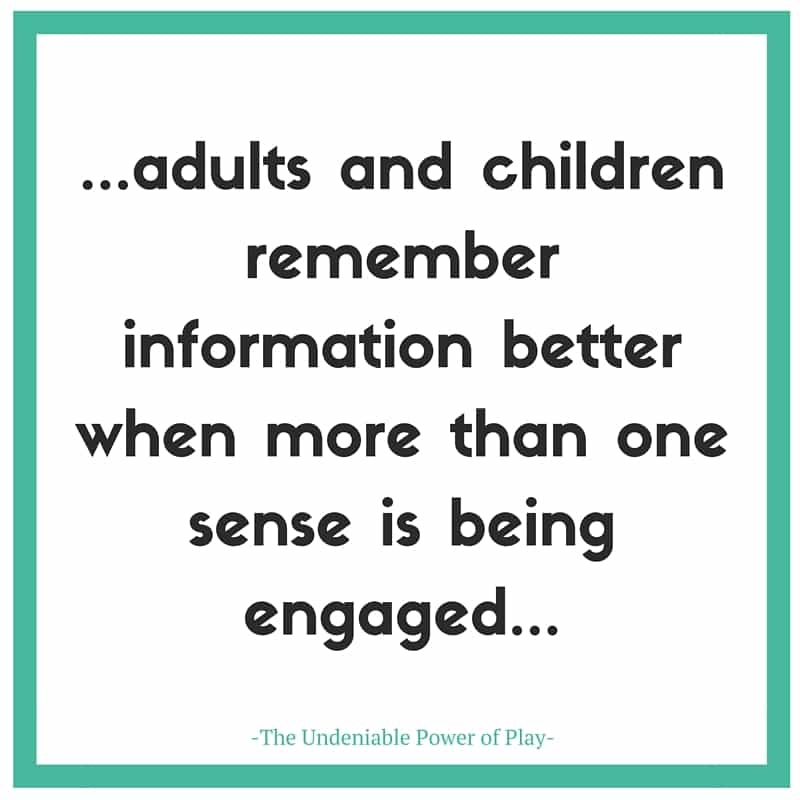
These are the benefits of sensory play
During sensory play, children aren’t simply splashing water, moulding playdough, or digging in dirt, they’re developing crucial learning skills. As an infant, a child’s only input is through physical stimulation. When she picks up two different blocks, she realizes one is lighter than the other.
But it doesn’t stop there.
When a sense is repeatedly engaged during learning, the structures of the brain change. For example, people who use brail to read have a much more developed somatosensory cortex than those who don’t.
By providing students with materials that they can physically manipulate, play with and explore, teachers help them learn more about the world and develop crucial skills that they will utilize later in life. – Caitrin Blake of Concordia University Nebraska
Based on educational research, during sensory play children learn:
1. Cause and effect.
For instance, if I stack this then it will create a pile. When I press down on it, it will become flat. If I pour water, sand will become wet. If I fill up a container past its rim, the contents will spill over. Really the causal learning is endless!
2. Scientific reasoning.
Sensory play is one of the earliest forms of hypothesis and theory testing. During sensory play, I stretch playdough to see how far it goes and learn at a certain point it breaks. I can then continue to test if adding more play dough delays the breaking point and if removing play dough increases the time at which it breaks. I can test to see if wet sand is easier to build a castle with than dry sand.
Physical properties and physical reactions are also learned by manipulating sensory mediums
3. Mathematical reasoning.
If I take 250ml of water and pour it into a 500ml bottle at first, I will think the quantity has changed based on the size of the container. But with enough experience, I will slowly learn that the quantity remains the same.
4. Problem-solving.
If the cup I’m filling with cloud dough is overflowing, maybe I should try split up the contents between two containers or use a large container to fill.
5. Creativity.
Sensory mediums can act as a canvas for a child’s imagination. Play dough can become a flower, a ball, a person, a scene… A water table can be a swimming pool, a science lab, a pond, ocean, or adventure scene.
To read many more of the fascinating benefits of sensory play, including how they promote language and social and emotional development, click here.
How to Bring More Sensory Play into Your Home – 7 Simple Sensory Play Ideas
The truth is sensory play ideas are all around us. Whether you’re cleaning out your pantry, playing outside, scrolling through Pinterest or visiting a preschool or kindergarten classroom, there are simple ways to engage in sensory play. Sensory play doesn’t have to be elaborate or expensive.
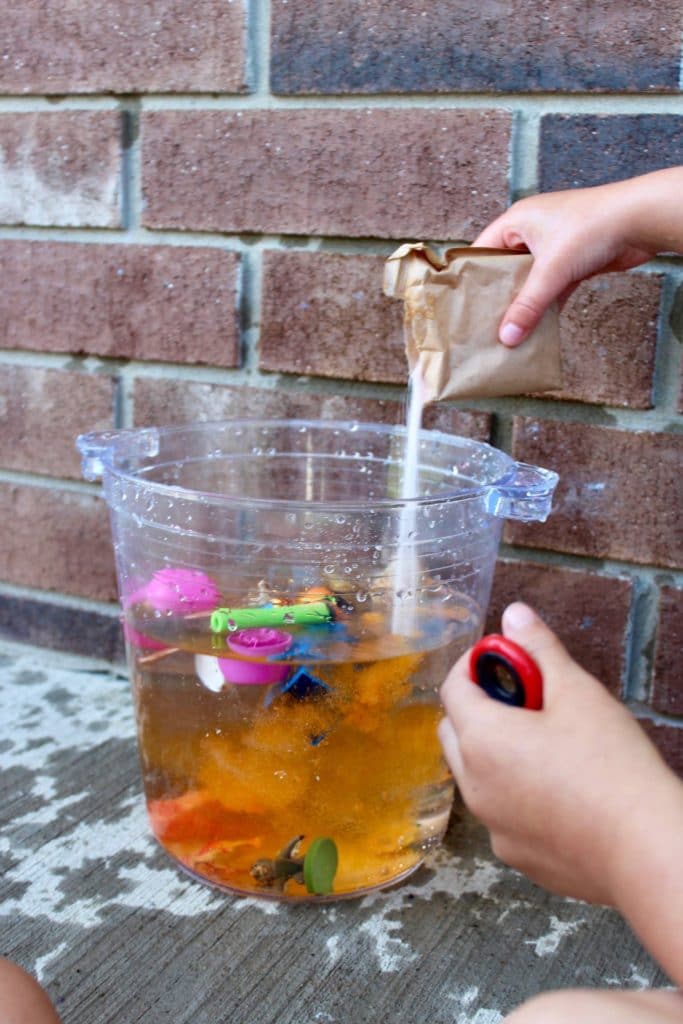
- Grab a tub of water and some crystals or jello powder. Pour the crystals in water and grab some bath toys to play with.
- Empty out the old stale cereal from your pantry by putting them in a bin. Run over them with toy trucks or smash them using toy tools.
- Make coloured cloud dough using chalk, vegetable oil, and flour.
- Make playdough with jello in it.
- Using coloured lentils, rice, or/and or dried beans, put them in a disposable pan or bin, grab some farm toys and have fun!
- Fill ice cube trays with water and food colouring and then place the ice into a bin with water. Again, add bath toys for some extra fun!
- Take some glitter glue, mason jars, little toys and warm water to make sensory jars.
- A bag of topsoil, a large container or kiddie pool, and trucks or sandbox toys and have fun!
Want more sensory play ideas including the research behind play and adaptations for all ages?
Click here to get your copy of The Undeniable Power of Play now!







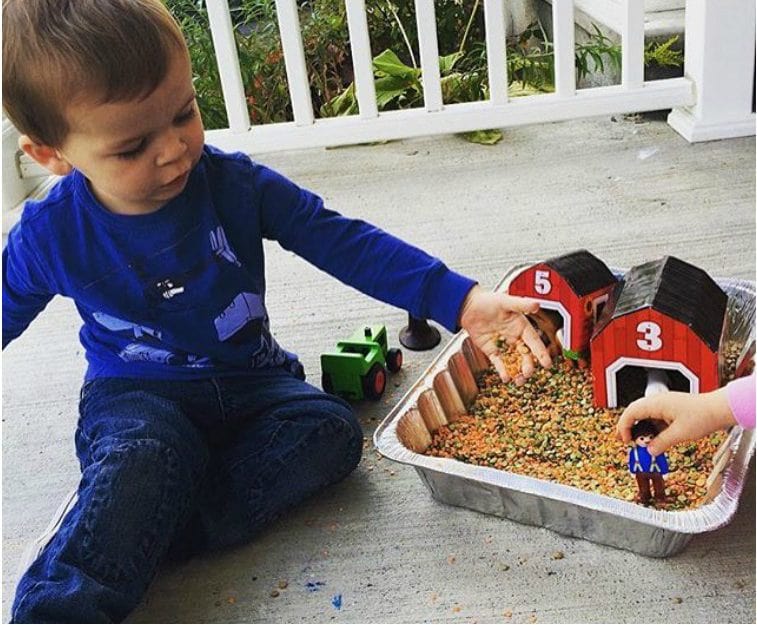

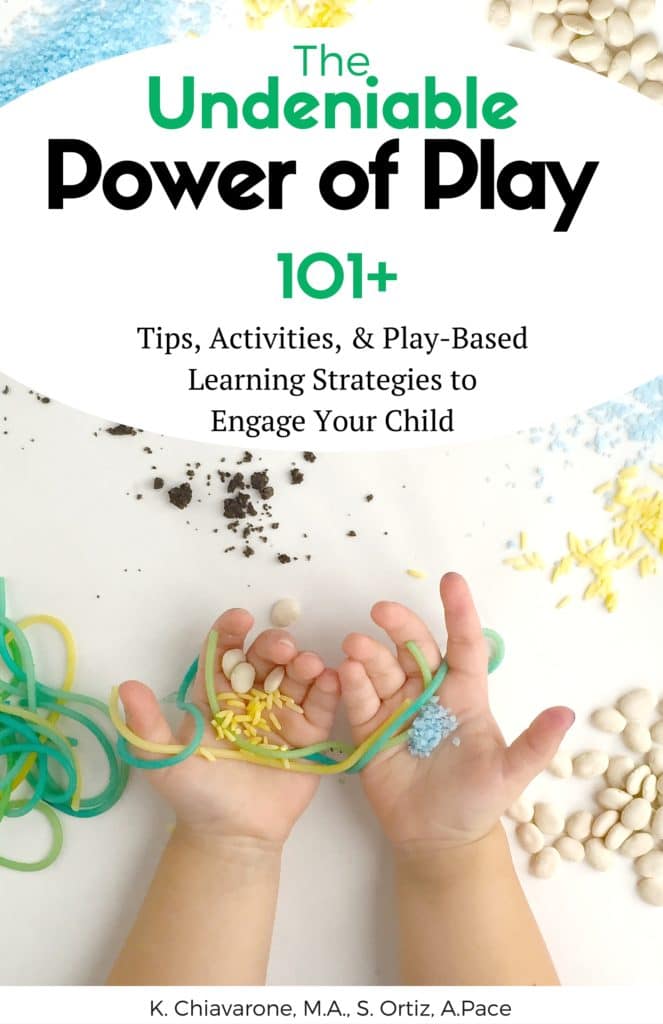
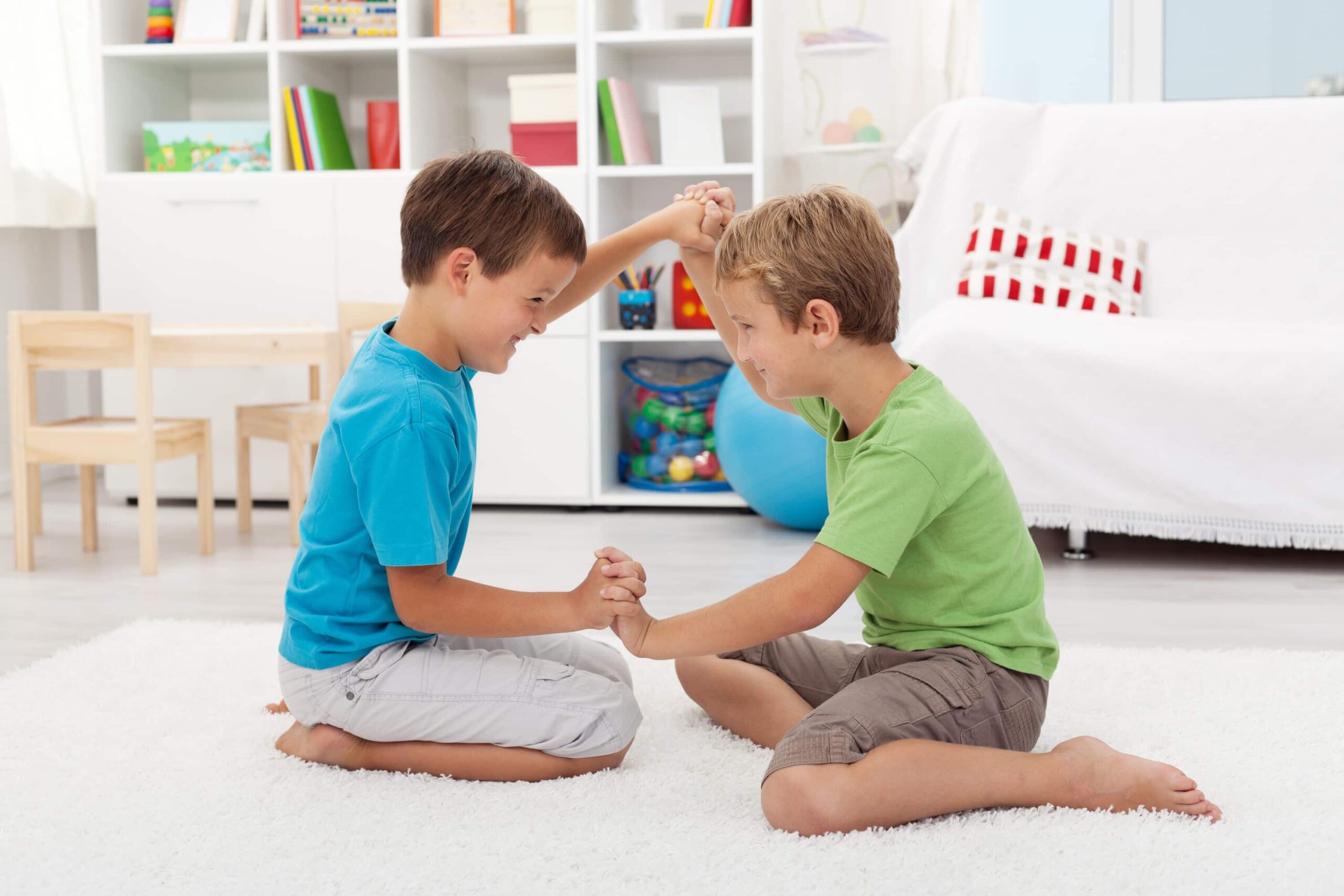
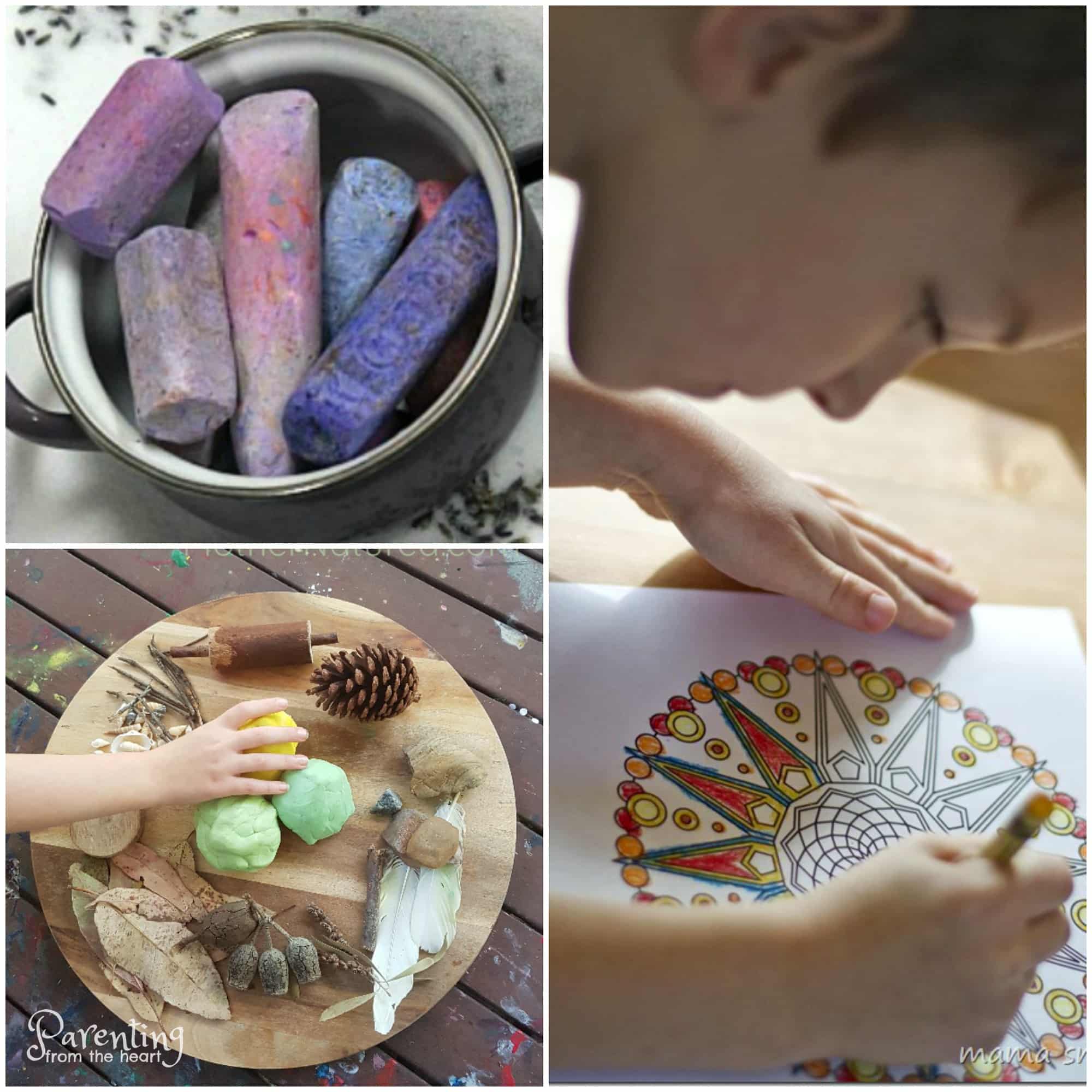
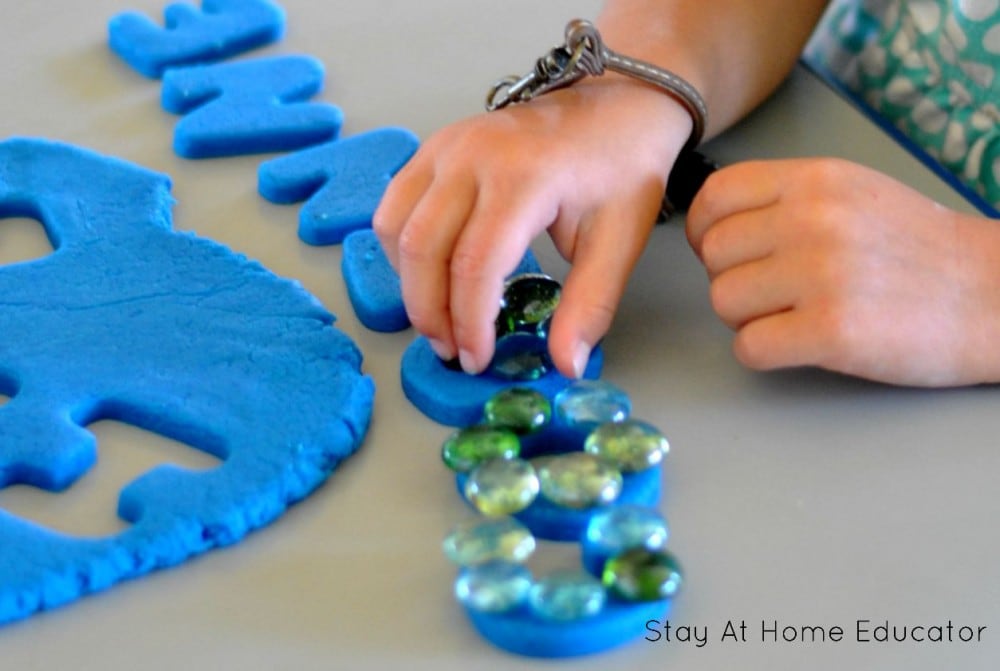
Hmm it appears like your site ate my first comment (it was super long)
so I guess I’ll just sum it up what I had written and
say, I’m thoroughly enjoying your blog. I too am an aspiring blog writer but I’m still new to
the whole thing. Do you have any tips and hints for beginner blog writers?
I’d definitely appreciate it.